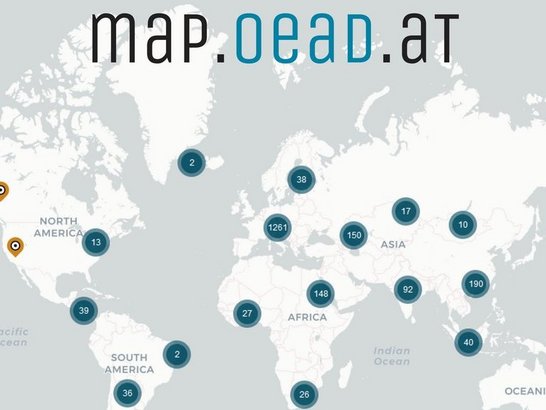Kenya
Country Representative
Prof. Dr.-Ing. Benedict M. Mutua (Technical University of Kenya); bmmutua@tukenya.ac.ke
Deputy: Dr. Joel Onyango (ACTS); j.onyango@acts-net.org
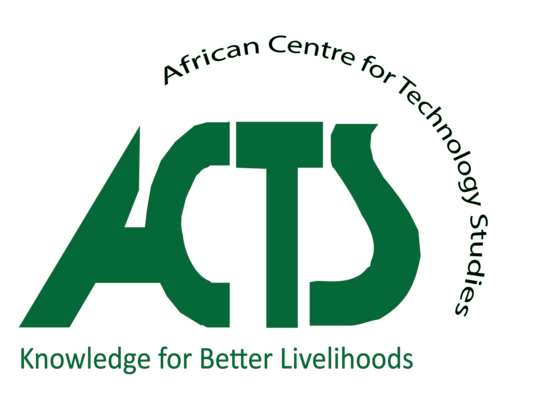
African Centre for Technology Studies (ACTS) | membership 2025 not active
The African Centre for Technology Studies (ACTS) is a leading Intergovernmental STI policy Think Tank which was established in 1988. ACTS is based in Nairobi through a host agreement with the Kenya Government and enjoys international status. ACTS’ governing council depicts its international status. It has representation from Ghana (current chair), Ethiopia, Malawi, Cote d’Ivoire, UK, Sweden, COMESA, NEPAD and the East African Science and Technology Commission. The Vision of ACTS is – Knowledge for Better Livelihoods, whereas the mission is to strengthen the capacity of African countries and institutions to harness Science, Technology and Innovation for sustainable development. Over the last 30 years, ACTS has been instrumental in enlarging the range of policy choices for sustainable development in Africa through high quality research. For example, ACTS’ work influenced patent industrial property legislation and policy (Kenya); environmental impact assessment standards (Eastern and Southern Africa); bio-energy and biofuels policy (Eastern and West Africa); agricultural policy, bio-diplomacy, biotechnology and biosafety (Africa-wide); and climate change adaptation and mitigation (Africa-wide). ACTS was the first to organize an international conference to discuss options that African countries could adopt to mitigate the impact of climate change and also played a major role in the negotiation for the Convention on Biological Diversity.
Founding member
Membership: Since 2020
Representative:
Dr. Joel Onyango
Joel has worked for years in research and management with a focus on science technology and innovation; climate change adaptation and mitigation; water quality, security and access; food security, entrepreneurship and markets, and sustainable development. Joel did his PhD research on effects of agricultural development on resources pollution, and has current research interest in governance of transformation. Joel has published extensively in climate smart innovations and entrepreneurship, inclusive innovation policy, and water resources degradation. Joel is a team leader at the African Researchers Consortium – an organization focusing on bespoke research for inclusive innovation and enterprise development; and a research fellow at African Centre for Technology Studies on governance of sociotechnical transformations and inclusive low emission development pathways. Joel also leads the Africa Sustainability Hub (ASH) Young Scholars Academy programme.
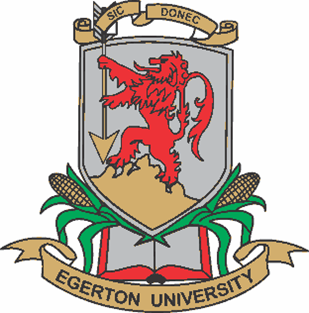
Egerton University (EU)
Vision: A world class university for the advancement of humanity
Mission: To generate knowledge and offer exemplary education and training to society for national and global development
Egerton University is the oldest institution of higher learning in Kenya. It was founded as a Farm School in 1939 by Lord Maurice Egerton of Tatton. The University is the premier Agricultural public University in Kenya gazetted in 1987, through an Act of Parliament and accredited by Commission for University Education (CUE) in 2013 after the amendment of the University Education Act in 2012. However, the university has broadened to other areas of research and teaching such as natural resources, applied sciences, education, computer science, medical sciences, engineering and business studies. The University’s main campus is located at Njoro, about 180 Kms northwest of Nairobi off Njoro-Mau Narok road. The famous Lake Nakuru, the home of beautiful lesser flamingoes is only 27 Kms away. The University has 2 constituent Colleges which are; Kenyatta Campus and Nakuru Town Campus College. Egerton University is renowned for:
- Excellent academic programmes.
- World class Lecturers.
- World class electronic library resources.
- Well-equipped laboratories.
- Quality accommodation for both local and international students.
- Pristine environment for learning and green atmosphere which is good for studies.
- Wide variety of recreational facilities.
- Secure environment within campus and the surrounding.
- Opportunities for Scholarships though limited to excellent students
- Work study programme limited to needy students.
For more information about Egerton University visit: http://www.egerton.ac.ke/
Founding member
Membership: Since 2020
Representative:
Prof. Nzula Kitaka; Director, Board Member and Vice President of Africa-UniNet
Nzula Kitaka is an associate professor and a researcher of “Aquatic/Water Science” in the department of Biological Science, Egerton University, Kenya. Prof Kitaka graduated from University of Nairobi, Kenya with a B.Ed. Sc. (Hons) Botany & Zoology in 1985 and M.Sc. Hydrobiology in 1993. Kitaka attended a 9 months International Post –Graduate Course on Limnology at the Institute of Limnology, Austrian Academy of Sciences in 1992. She obtained a PhD in 2001 at the Faculty of Medicine & Biological Sciences, University of Leicester, UK, specializing in Limnology.
Prof Kitaka has been involved in several collaborative research projects either as a PI or researcher; among them, Country Manager in 2003 and a researcher in the European Union INCO-DEV Fingerponds project on integrated Aquaculture in East African Wetlands geared towards improving the livelihoods of the wetland communities without harming the natural environment; Researcher in the Dutch Government funded projects under DUPC in collaboration with UNESCO-IHE- ECOLIVE (Ecology of livelihoods in Nyando Wetlands); PI in Environmental Flows for the People and Ecosystem in the Mara River Basin (MaraFlows Project) and PI in “Co-Management of Wetland Ecosystems and Irrigation for enhancing livelihood in Lake Victoria Basins”; Researcher and Kenyan Project coordinator of “An Earth Observation and Integrated Assessment EOIA) Approach to the Governance of Lake Naivasha, Kenya” project which was a collaborative research between Egerton University & University of Twente-ITC (Funded by WOTRO); A Technical Director in the “Transboundary Water for Biodiversity in the Mara River Basin, Kenya” project, contracted by The Florida International University Board of Trustees; a Team leader of “Nile Ecosystems Valuation for wise-Use” (Nile-Eco-VWU) funded by CGIR in collaboration with other 6 institute in Africa and Europe among others.
Kitaka was one of the founders of “Tropical Limnology Course” (Troplimno – a three weeks course from 2004- 2008) in collaboration with Austrian Academy of Sciences. The course evolved becoming one of the major regional programmes in training water scientists and managers. Prof Kitaka has been one of the coordinators in the initial Limnology of Wetland Ecosystems (LWE) of UNESCO-IHE, The Netherlands (2009-2012) which transformed to a Joint Degree in Limnology and Wetland Management (LWM) in Collaboration with Egerton University, BOKU & UNESCO/IHE- Delft from 2012 to date and newly launched Joint Master’s Degree in Ecosystem Aquatic & Ecosystem and Environment Management (AEEM) in partnership with Egerton University, Addis Ababa University (AAU), Bahir Dar University (BDU) and Ethiopian Institute of Agricultural Research (EIAR), majorly funded by Austrian Development Cooperation (ADC). These programmes have provided in-depth insight in translation of theoretical knowledge into practical approach to enhance research skills towards wise use of aquatic systems and ecosystems services for livelihoods enhancement, particularly in tropical systems in developing countries.
In 2013 & 2018, Kitaka partnered with Loughborough University in UK to host the 36th and 41st WEDC International conferences at Egerton University Prof Kitaka has been involved in professional networking and advocacy in the region through Eastern Africa Water Association (EAWA), launched in December 2003 with the support of the ADC as a former Secretary and national Chair. EAWA intensified regional and international collaboration in water sciences and technology in order to tackle the local societal challenges in water and sanitation, particularly in enhancing linkages between communities, water scientist and policy makers. She has also been a member of ARCA-Net Consortium: Alumni Raising Crises-&-Conflict Awareness in 2005-2010. ARCA-Net was a consortium of worldwide professionals from different sectors in partnership with Free, Humboldt, and Technical Universities in Berlin & Max Plank Institute for Foreign and International Criminal Law addressing issues related to Nexus of Natural Resources and conflicts: Prevention & Resolutions, Coping strategies focusing on different cases worldwide.
She was one of the lead persons on the Info Dev Growing Innovator and World Bank project which developed “East Africa Climate Innovation Network” (EACIN) a collaboration initiative of Egerton University, African Centre for Technology Studies (ACTS), South-South Global Assets and Technology Exchange (SS-GATE), University of Dar es Salaam, National Agricultural Laboratories (NARL), Uganda, Practical Action East Africa, Rwanda & University of Addis Ababa, Ethiopia (Funded by World Bank)
On Policy advisory, Prof Kitaka was appointed as a member of the Scientific Advisory Council (SAC) for the ERA Net “SPLASH” project: European Union Water Initiative European Research Area Network (EU-WI Era-Net) ERAC-CT-2006-036268 and was a Council member for the Kenyan National Council for Science and Technology (NCST) 2010-2013 which transformed to “National Commission for Science & Technology (NACOSTI). In 2014 Kitaka was appointed a member of the National Steering Committee for NETFUND Green Innovations Award (NETFUND-GIA) under the Ministry of Environment, Water and Natural Resources.
Prof Nzula Kitaka is one of the directors of Local Ocean Conservation (LOC-WTW) protecting Sea Turtles in Watamu, Kenya. She has supervised several masters and PhD students and published widely in referred journals, publications and book chapters

Kibabii University (KIBU)
Kibabii University is a Public University situated in the Western Region of Kenya in Bungoma, County. It is one of the fast growing and dynamic Universities in Kenya, in the region and globally. The University Vision is to be a dynamic, global University of excellence in Science, Technology and Innovation. Its Mission is to achieve excellence in generation, transmission and enhancement of new knowledge in Science, Technology and Innovation through quality Teaching, Research, Training, Scholarship, Consultancy and Outreach programmes. Kibabii University was established to directly or in collaboration with other institutions of higher learning and stakeholders to provide facilities for university education (including technological, scientific and professional education), the integration of teaching, research and effective application of knowledge and skills to the life, work and welfare of the citizens of Kenya. Other mandates include: to participate in the research, transmission, preservation and enhancement of knowledge and to stimulate intellectual participation of students in the economic, social, cultural, scientific and technological development of Kenya; and to provide and advance university education and training to appropriately qualified candidates leading to the conferment of degrees and awards of diplomas and certificates to contribute to manpower needs. The University engages in the discovery of new knowledge and skills that address scientific, socio-economic and technological concerns nationally, regionally and internationally. The activities of the Austrian-African Research Network including teaching and training, mentorship, internship/placement, research and innovation, and resource mobilization, through strategic partnerships therefore fall within the realms of the University mandate. Kibabii University will therefore contribute immensely towards the scientific discourse and share its research outputs with other stakeholders within the Africa-UniNet.
Founding member
Membership: Since 2020
Representative: Dr. Echaune Manasi
Dr. Manasi Echaune is a Senior Lecturer in the department of Educational Planning and Management at Kibabii University, Kenya. Dr. Echaune holds a PhD in Educational Planning and Management from Kibabii University, a Master of Educational Planning and Management from Masinde Muliro University of Science and Technology, Kenya and a Bachelor of Education from the University of Nairobi, Kenya. Dr. Echaune joined Kibabii university as lecturer in 2019 and since then spent time in university teaching, curriculum development, consultancy, supervising postgraduate students and research. His research interests include equity and efficiency in education, gender, equality and inclusive in education, in service teacher professional development. mentorship and peer support. He has participated in implementation of various research projects such as the Strengthening In-service Teacher Training and Support (SITTMS) project funded by the International Development and Research Centre (IDRC), the Early Career grant writing project funded by the Association of Commonwealth Universities (ACU). Dr. Echaune is the Co-Investigator of the Strengthening Mental Health Among Secondary School Students in Kenya (SMEHAS) a project funded by Africa- UniNet and being implemented by Kibabaii University in collaboration with the Medical University of Graz (Austria) and National University of Lesotho (NUL). Dr. Echaune is a member of the Kenya Association of Educational Administration and Management (KAEAM) and has widely published in the areas of Educational Planning and Management. He has successfully supervised over 10 postgraduate students at masters and doctoral level.
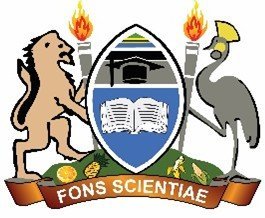
Kisii University (KSU)
Kisii University (KSU) is a fully-fledged Higher Education institution in Kenya officially established on 6th February 2013 in accordance with the Universities Act of 2012. The University began as a campus of Egerton University in 1994 and later evolved into a constituent college in 2007. Over the years, KSU has become one of Kenya's leading higher education institutions, celebrated for its wide array of academic programs and commitment to excellence. KSU boasts a diverse student population exceeding 20,000, spread across eight schools: Health Sciences; Law; Pure and Applied Sciences; Education and Human Resource Development; Information Science and Technology; Arts and Social Sciences; Agriculture and Natural Resource Management; and Business and Economics. The University offers a range of academic programs, including 38 PhD programs, 23 MSc programs, 14 MA programs, 38 BSc programs, and 19 BA programs, all housed within the eight schools. The university also hosts several directorates, such as the Directorate of Quality Assurance and Postgraduate Studies, and various departments that support its academic mission.
Kisii University is located approximately 2 KM from Kisii town along the Kisii-Kilgoris Road in Southwestern Kenya. The University occupies 61 acres in the serene highlands of Kisii about 305 KM from Nairobi, the capital city. The University's vision is to be an inclusive and borderless institution that fosters positive global change. Its mission is to create a transformative environment that preserves knowledge, enriches the student experience, delivers quality training and research, and promotes community engagement for sustainable development. The operations of KSU are based on transformative thinking, respect, inclusion, and fairness. The university`s guiding philosophy emphasizes creativity, science, technology, innovation, critical thinking, responsiveness to societal needs and service to humanity.
The mandate of Kisii University is to produce competent and high-quality graduates, generate appropriate knowledge, skills, competencies, and innovation outputs that impact national development goals and social welfare, produce, transfer, and disseminate appropriate technology for the benefit of the university, industry, and society. The strategic goals that guide Kisii University include enhancing the quality of education, training, and learning; preserving, generating, and communicating knowledge; promoting partnerships, collaborations, and community outreach; developing and maintaining adequate physical and technological infrastructure; improving and maintaining financial sustainability; and developing and supporting cancer management and research as a key focus area.
https://kisiiuniversity.ac.ke/
Membership: Since 2025
Representative:
Dr. nat. techn. Zipporah Moraa Gichana: zgichana@kisiiuniversity.ac.ke
Zipporah is a lecturer/researcher specializing in water quality, aquaculture and fisheries at Kisii University. She holds a PhD in Natural Resources and Life Sciences from the University of Natural Resources & Life Sciences, Vienna, Austria, an MSc in Fisheries & Aquatic Sciences from the University of Eldoret, and a BSc in the same field from Moi University. She is actively engaged in research on sustainable aquaculture production systems, wastewater management in aquaculture, biomonitoring of aquatic ecosystems and aquaponics. Her current research interests include sustainable wastewater management - bioremediation and climate-smart food production systems. She currently serves as the head, department of Environment, Natural Resources & Aquatic Sciences. Zipporah has an extensive publication record in aquatic sciences and is an active member of the Organization for Women in Science for the Developing World (OWSD).

Laikipia University (LU)
Laikipia University (LU) is a fully fledged Kenyan University that was established on 19th February 2013 through the Laikipia University Charter 2013 and the Universities Act 2012. It was initially established as a campus of Egerton University in 1990 and became its constituent college in 2011. The Vision of Laikipia University is to be a University for valued transformation of society. Its Mission is to serve students and society through research, education, scholarship, training, innovation, outreach and consultancy. The core values that underpin the operations of the University are; Quality, Integrity, and Respect.
The Philosophy of Laikipia University is to strive to exploit its unique culture, heritage and natural endowments of high altitude. Through best practices and appropriate technology, the University endeavours to transform society by excelling in high altitude sports science training, environmental conservation and sustainable utilization of Arid and Semi-Arid Lands (ASALs) resources. The University is located in a serene and conducive environment for learning at the transition point between high and medium agro-ecological zones of Kenya. The fundamental purpose of this philosophy is to mould Laikipia University into an institution recognized for world class research, academic excellence, nurturing talent and exceptional student body, and one that harbours the highest level of innovation, creativity, scholarship, community development and entrepreneurship.
The mandate of Laikipia University is to contribute to the development of knowledge and technology for the improvement and transformation of society through the following functions: Providing demand-driven and quality academic programmes at the university; mobilising sufficient resources for quality teaching, research, extension and community outreach; linking the university with industry; disseminating knowledge and promoting scholarship; providing a conducive working and learning environment; exploiting entrepreneurial opportunities from resources and innovations; protecting intellectual property rights; and performing any other functions as provided by the stipulated legal and regulatory requirements.
The strategic objectives of Laikipia University are: to produce quality graduates in line with industry demands by developing and reviewing academic, research, innovation and consultancy programmes of the university; to increase service delivery and customer satisfaction by enhancing governance, quality assurance, human capital and improving physical infrastructure; to improve financial status of the university by resource mobilization and prudent use of financial resources; and to widen and increase access to vocational and technical education by establishing a Technical, Vocational Education Training (TVET) institute.
In order to realize its vision, mission and mandate, while resting on its Quality Assurance Statement, Laikipia University commits to consistently monitor and evaluate the quality of academic and administrative activities based on applicable guidelines, standards and laws. To prepare scholars of high intellectual capacity relevant to the society and market demand, the University consistently endeavours to maintain high standards of service delivery. The University offers a range of academic programmes that include; twelve (12) PhD programmes, eleven (11) Master’s programmes, two (2) Post Graduate Diploma programmes, twenty-eight (28) Undergraduate programmes, nine (9) Diploma programmes and eight (8) Certificate courses. These programmes and courses are offered in four schools and one institute; namely, the School of Business and Economics, School of Education, School of Humanities and Development Studies, School of Science and Applied Technology, and Institute of Arid Lands Management. These programmes and courses are offered on regular, evening and weekend mode of study. Laikipia University also has a number of directorates and departments that support its academic programmes.
The mandate of Laikipia University is in line with the statutes of Africa-UniNet that seek the integration of Austrian higher education and research institutions in Africa in order to strengthen cooperation with higher education and scientific institutions on the African continent. Being a relatively young University in Kenya, membership of Africa-UniNet will allow the University to grow by establishing contacts, have institutional cooperation as well as create scientific cooperation with both Austria and other research institutions and universities in Africa. Laikipia University will further contribute immensely towards the scientific discourse and share its research outputs with other stakeholders within the Africa-UniNet.
Laikipia University has very unique features that could be exploited further for the transformation of society. These include being on an acreage of 927 that include arable land (439 acres), forest land and rivers (179 acres); being in a high altitude area (8500 feet above sea level) that supports training in athletics and sports programmes; having unique location of the University within the northern frontier of Kenya that covers Arid and Semi-Arid Land (ASAL) and a transition point between high and medium agro-ecological zones of Kenya; and its close proximity to Central Kenya and South Rift Tourist Circuit Areas that would be useful particularly for research programmes on tourism. These unique features would be exploited more adequately and exhaustively within the Africa-UniNet network.
Founding member
Membership: Since 2020
Representative:
Univ.-Prof. Felicia Yieke
Uni.-Prof. Dr. Felicia Arudo Yieke is a Full Professor of Applied Linguistics at Laikipia University. She has a PhD in Applied Linguistics from the University of Vienna (Austria), a Master of Philosophy in English from Moi University (Kenya), and a Bachelor of Education (Arts) from Kenyatta University (Kenya). She currently teaches at Laikipia University in Kenya in the Department of Literary and Communication Studies, School of the Humanities and Development Studies. Prof. Yieke is the Director of Graduate School since August 2019. Prior to this appointment, she was the Founding Dean of the School of Humanities and Development Studies; a position she held for eight years.
Prof. Yieke was recognized as a Founder Member of Laikipia University during the Charter Award Ceremony on 19th February 2013 that was presided over by the Third President of the Republic of Kenya, H.E. Mwai Kibaki. As a Founder member, she was usually the chair or member of various Task Forces and Committees that were established in moving the University towards a fully-fledged institution of Higher learning in Kenya. Prof. Yieke has spent her time in the classroom teaching and also performing administrative duties since 1997 when Laikipia University was still part of Egerton University. Her research interests are in the areas of Sociolinguistics (language and gender; language, identity and ethnicity) and Discourse Analysis (language, discourse, ideology and power). She also teaches Human Rights, Communication in Leadership and Management, Corporate Communication, Managerial Communication, Communication Ethics and Research Methods. She has successfully supervised over 35 Graduate students who include both PhD and Masters Students and still has many more students in various stages of their research work
Prof. Yieke has won several international awards including the 2003 CODESRIA Advanced Researchers Fellowship. She is currently an External Examiner for three Universities in Kenya. She has presented academic papers in both local and international conferences, workshops, seminars and symposia. She is an active and prolific writer and has published more than 43 book chapters and articles in national and international peer reviewed journals; has been Editor with renowned publishers across the globe; and has done peer review for many journals. She is also Editor-in-Chief of the Laikipia University Journal of Social Sciences, Education and Humanities (JSSEH).
Prof Yieke is an accredited pre-qualified Peer Reviewer for Commission of University Education (CUE) in Kenya and has conducted both site and programme evaluation for the Commission in various universities in Kenya. She is trained on Quality Management Systems on Higher Education and also an expert on curriculum development for University Programmes. She is an Internal Auditor for the University and is trained as a Certified Internal Auditor in Information Security Management System based on ISO 27001:2013 and ISO 19011:2018. She is trained in Bioethics and is also a member of the Bioethics Society of Kenya. She is also a founding member of the Laikipia University Institutional Ethics Review Committee (LU-IERC). She is a Human Rights expert and is a Trainer attached to the Kenya National Commission on Human Rights (KNCHR). Remarkably, Prof. Yieke is the Editorial Adviser for the Leisure, Culture and Society Section of the Routledge Encyclopaedia of African Studies (REAS) which is hosted by Taylor and Francis Group in the UK.
Having experience of research on communication and gender variables in development matters at community level and being an advocate of community service, Prof. Yieke is involved in community outreach service and mobilization; fund raising activities for both schools and churches in her rural village; mentorship programmes for girls schools in the community and was the founding Chair of Board of Management (BOM) of Nakuru Girls High School (a National School in Kenya) from 2006 to 2012. She takes a lot of pride in mentoring the youth, particularly the girl child.
Prof Yieke has membership to various international professional bodies and associations; Member of Council for the Development of Social Science Research in Africa (CODESRIA); International Gender and Language Association (IGALA); International Association of Conversation Analysis (ICCA); International Association of Applied Linguistics (AILA), and also Alumni of DAAD and OeAD. These associations have continued to build her in the academic path.
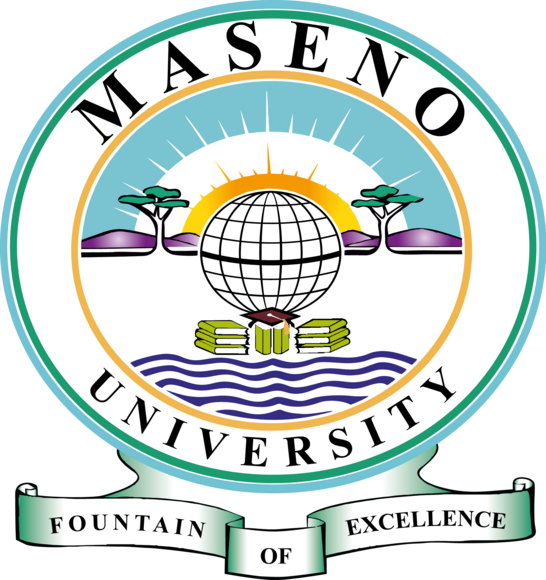
Maseno University (MSU)
Maseno University stands out as a modern chartered Institution of higher learning set up to advance teaching, learning, research and development that responds to the emerging socio-economic as well as technological and innovation needs of Kenya and the Eastern African Region. Established as a fully fledged University in 2000 and by 2019 had a student population of 21000.
The University offers undergraduate and post-graduate programs in different disciplines at the following schools: School of Arts and Social Sciences, School of Education, School of Biological & Physical Sciences, School of Public Health and Community Development, School of Environment and Earth Sciences, School of Development and Strategic Studies, School of Business and Economics, School of Medicine, School of Nursing, School of Agriculture and Food Security, School of Mathematics and Actuarial Science, School of Computing and Informatics, School of Planning & Architecture and School of Graduate Studies. The mode of learning in most schools is face to face. However, some schools also have e-learning as a mode of learning.
Joining the Afri-Uninet will provide opportunities for Maseno University to strengthen capacity in teaching and research; Get actively involved in research and technology transfer within the Afri-Uninet network . This will help the Institution and Kenya as a country to move towards the achievement of vision 2030 and sustainable development goals.
Within the Afri-Uninet research network , Maseno University brings an array of research opportunities in areas such as limnology, water resources and water sports tourism since the Institution is situated within the shores of Lake Victoria. As a result of its proximity to Kakamega Tropical Rainforest, there are opportunities for researchers keen on ornithology, Primate research and Ecotourism. Kakamega Forest exhibits habitat rarity and rich biodiversity for birds, primates, plants and other forms of life. Being located on the equator, there are several research opportunities for tropical medicine diseases such as malaria. Other research opportunities include agriculture and food security, renewable energy and climate change, tourism and climate change among others.
The University has active linkages and partnership with local and international Institutions such as University of Nairobi, Kenya Medical Research Institute, several universities in Europe and United states of America.
Founding member
Membership: Since 2020
Representative:
Dr. Oscar Kambona Ouma
Kambona Oscar Ouma, a Kenyan by nationality, born in 1968 in the shores of Lake Victoria, Mfangano Island, holds a Doctor of natural sciences (Dr. rer. nat.) in Geography from the University of Salzburg, Austria. His doctoral thesis is entitled: Environmental Protection, Ecotourism and Rural Livelihoods: The case of the Kakamega Forest Region, Kenya. Since then, he has developed research interest and analytical skills in conservation of protected areas and livelihoods of host communities. He has also shown keen research interest in recreation ecology impacts with special focus on the use and sustainability of trails. He is trained in trail auditing by the World Trails Network and a member of the Network’s trail sustainability task force. As a result of his research interest in protected area conservation, Dr. Kambona is an appointed expert member of the IUCN – Tourism and Protected Areas Specialist Group (TAPAS). As an academic, he is a Senior Lecturer in Ecotourism, Sustainable Tourism and Conservation in the Department of Ecotourism, Hotel and Institution Management (ECOHIM) of Maseno University, Kenya. Dr. Kambona has a wealth of administrative experience having worked as the Chairman of ECOHIM Department for about 10 years. He has successfully supervised over 15 post graduate students at doctoral and masters level. He is widely published in the area of Hospitality, Tourism and Sustainable Tourism. Internationally, he has travelled widely attending learned conferences in the area of his research interest. He has demonstrated corporate social responsibility having been a member of school management boards and currently an appointed expert member of the Public Service Board of Kisumu County.
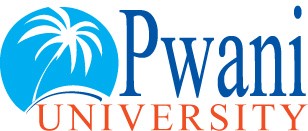
Pwani University
Pwani University is a public university in Kilifi County in the coastal region of Kenya, located 60km north of Mombasa in the city of Kilifi. Prior to the award of a charter, the university was a constituent college of Kenyatta University. Pwani University is structured into various schools and offers a large number Bachelor, Masters and Diploma courses. Research has been established in close collaboration with many other research institutions across the globe.
Membership: Since 2024
Representative: Prof. Dr. Maarifa Ali Mwakumanya
Prof. Dr. Maarifa Ali Mwakumanya is an Associate Professor and a researcher, working in the fields of environmental sciences and environmental management. He is the Dean of the School of Environmental and Earth Sciences. His key-interests are in the field of ecosystem management, climate change mitigation and adaptation and environmental policy and development, natural resource management.

Technical University of Kenya
The Technical University of Kenya is the first technical University to be established in Kenya. Through research, teaching and innovation, the University aims to provide specialized technological education and training that contribute towards advancement of society at national and international levels. This broad objective is achieved within three broadly clustered faculties, each comprising of more five schools, which are further partitioned into several specialized departments offering various under- to post-graduate degree and diploma courses.
Founding member
Membership: Since 2022
Representative:
Prof. Dr.-Ing. Benedict M. Mutua, Vice-Chancellor, bmmutua@tukenya.ac.ke
Prof. Dr.-Ing. Benedict M. Mutua is a full Professor of Water Resources, Hydraulics and Environmental Engineering. Benedict Mutua is a Professor of Water Resources, Hydraulics and Environmental Engineering. Prior to his appointment as Vice Chancellor of TUK, he was the Deputy Vice-Chancellor (Planning, Partnerships, Research and Innovation) at Kibabii University. Prof. Mutua holds a PhD in Water Resources and Environmental Engineering from University of Natural Resources and Life Sciences, Vienna (BOKU) Austria. His studies were financed by the Austrian Development Cooperation.He obtained his PhD in Water Resources and Environmental Engineering from the Universität für Bodenkultur (BOKU) Wien (University of Natural Resources and Life Sciences, Vienna, Austria. He obtained his MEng. Sc. in Civil and Environmental Engineering from the University of Melbourne, Australia where he specialised in Hydraulics Engineering. He also obtained another MSc. in Water Resources Engineering from Hebrew University of Jerusalem, Israel where he Specialised in Water Resources Engineering and Systems Management). He obtained his BSc. in Agricultural Engineering from Egerton University, Kenya. In addition, Prof. Dr. Ing-Benedict M. Mutua obtained a Postgraduate Diploma in Water Resources Management from Tel Aviv University, Israel and a Diploma in Soil and Water Engineering from Egerton University, Kenya. He has also done a number of Postdoctoral Research studies in different countries. Prof. Dr.-Ing. Benedict M. Mutua started his teaching and research career in 1990 at Egerton University, Kenya. He has a wealth of experience in teaching, research, administration and Project Management. He is currently the Team Leader and Principal Investigator for a number of on-going European Commission funded projects (Under Erasmus+) including the AHEAD Project at Kibabii University, the Austrian Partnership Programme in Higher Education and Research for Development (APPEAR) between BOKU and Egerton University in Kenya. He jointly with Faculty from BOKU University, Vienna Austria completed EU funded Projects under the 6th and 7th EU Frame Work namely; Waterman Project focusing on Water Resources Management in Eastern Africa, ROSA Project focusing on Resource Oriented Sanitation and reuse of treated wastewater in Eastern and Western Africa; CLARA Project focusing on Integrated Water Supply and Sanitation in Rural and Peri-Urban Areas in the Eastern, Western, Northern and Southern Africa.
Prof. Dr.-Ing. Benedict M. Mutua’s research interests include and not limited to; Applied Hydraulics, Fluid Mechanics and Dynamics, Water Resources Engineering, Climate Change and Applied Hydrology. He is experienced in the application of Hydraulics and Hydrological models in solving Water Resources challenges in River Basins, Flood prediction, Drought assessment and forecasting as well as in Climate and Land use change studies. Prof. Dr.-Ing. Benedict M. Mutua is involved in a number of Community outreach and Extension Services especially in the area of Water, Sanitation, Health and Education. He has recently developed a Simplified Planning Tool (SPT) for Integrated Water Supply and Sanitation in Small and Fast growing Towns in Kenya. He has presented his research work in many international conferences. He has supervised many postgraduate students both at MSc., PhD and Postdoctoral levels and has published several scientific articles in reputable Journals. He has also published a number of books and book chapters. He has been invited as a Visiting Professor in many Universities globally. He is currently serving as a member of the Jury Board at the Pan African University (PAU) at Tlemcen University, Algeria in the Water Engineering Programmes. He is a member of several International, Regional and National Professional bodies. He serves as a member of the Editorial Board in a number of International Journals. He is also a member of several International Scientific Conference Committees. He is an External Examiner for several Universities. He has won several European Union, African Union, Regional, National and other Internationally funded research projects. He has traveled widely and has collaborative research activities and joint postgraduate students’ supervision in several countries. He has been trained in many professional short courses both nationally and internationally. Prof. Dr.-Ing. Benedict M. Mutua has received several recognitions as a Professor, Mentor, Manager, Administrator, Leader and Researcher. He desires to continually provide an all-inclusive leadership with a focus built on three (3) pillars namely; the People, Processes and Products.
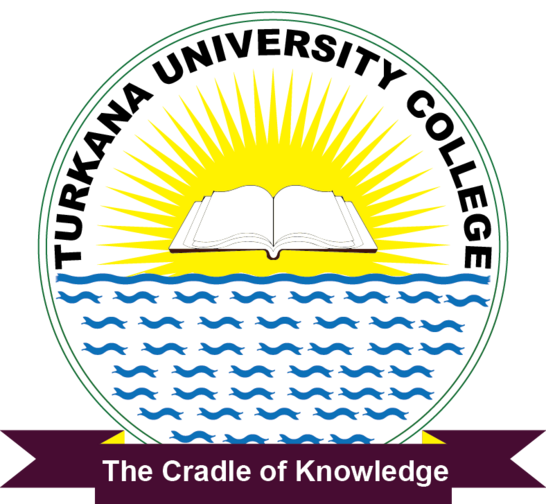
Turkana University College (TUC)
Turkana University College was established through a Kenya Government Legal Notice No.8 of 2017 and gazetted and inaugurated on 27th January 2017. It is situated along the Lodwar-Kitale Highway and is 7 kilometres from Lodwar town and about 500 kilometres from Nairobi. It is located within Turkana county which borders with South Sudan to the north, Uganda to the West and Ethiopia to the northwest. The university college takes prode in being Kenya’s first public university to be established in the vast North Western region of the country within the Lake Turkana Basin which is world famous for being the cradle of mankind. Thus, within the cradle of mankind has emerged the “Cradle of Knowledge” in science, technology and innovation in the name of Turkana University College. The core values that define our operations are: Collaboration- At Turkana University College, we believe in working with others to achieve our goals. Optimism- At Turkana University College, we are hopeful, encouraging and courageous. Integrity-At Turkana University College, we uphold an honest, transparent and responsible approach to our operations. Ubuntu- At Turkana University College, we always seek to establish a mutually compassionate, supportive and humane connectedness among individuals. Collegiality-At Turkana University College, we cherish friendly and cooperative interactions among members to build productive relationships among them.
Founding member
Membership: Since 2020
Representative:
Dr. Peter Edome
Dr. Peter Edome Akwee, PhD. is a Senior Lecturer and Founder Dean, School of Science and Technology since inception of Turkana University College in 2017 up to date. He is a perfect blend of an Intellectual and professional natural scientist in the area of Plant Genetics. He holds Doctor of Philosophy in Botany specialized in Plant Genetics, MSc. Biology and BEd. Science (Botany and Chemistry). Dr. Edome has served both in academic and administrative leadership positions at various echelons of the university. He has served as an acting Deputy Principal (Academics and Students Affairs) from January to July 2020 at Turkana University College. At Masinde Muliro University of Science and Technology, he served as a Campus coordinator from 2015 to March, 2017). At the University College has served in many capacities including but not limited to University College Academic Board and Deans Committees and Chairperson of several Ad Hoc Committees.
Over the last seventeen years (17) years at the university, he has published several peer-reviewed articles and participated in numerous regional and international conferences. He has an in-depth understanding of scientific research and publishing landscape in scientific journals, having been appointed as technical expert and served in both bilateral technical committees at national and regional levels in Kenya and beyond. He is among the top notch scholar and prolific researcher in the region who has won several research grants and awards in Africa and USA including his postgraduate students. He is a very passionate researcher fond of developing most robust, reliable scientific methodological approaches and infrastructure for knowledge-led and evidence-based results for sustainable development. He has established very strong and meaningful partnerships and linkages for Science and Technology development at the University College with many partners both at the National and International level.
